Visiting survivors of the tsunami in Sunda Strait in western Java of Indonesia
19/06/19 08:08
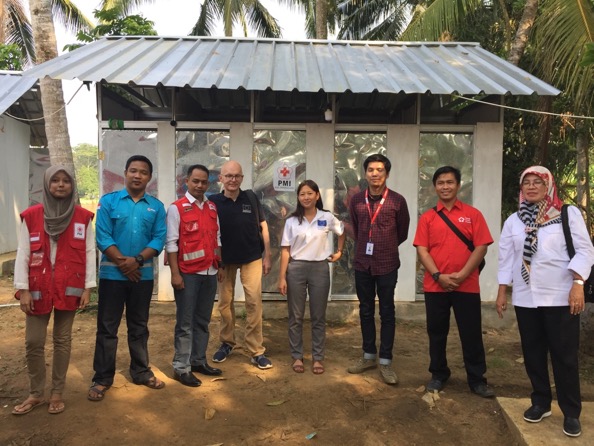
In Pandeglang, western Java: The team of Indonesia Red Cross, responsible supporting the survivors of the tsunami of the Sunda Strait
Together with my new ECHO colleague, Neung, we managed to make it to western part of Java (Indonesia) to visit the survivors of the tsunami, which took place in Sunda Strait in December last year. We came to see how some of those who lost their homes cope in their temporary camp in Pandeglang.
We had some very mixed feelings. On one side, the emergency teams (including the Red Cross) clearly are doing a great job in providing the daily necessities for the people so that they can carry on their living as comfortable as only possible given their situation and very little financial resources available to the humanitarian actors. The shelters were crowded, but offered privacy, and solid protection from bad weather. The latrines and shower rooms were clean, and people had access to basic medical care and adequate quantities of clean and safe water, as well as food. Well done!
Then, we were disappointed to learn that the authorities fail to provide any tangible plan for the families to get back to normalcy: to rebuild their houses, or to help people return to their jobs and businesses (most live from catching fish). Also, there is a serious gap in providing education services for the children, even if it is already 6 months after the disaster. When we talked to the people, no one was very optimistic, nor would anyone display much trust in promises that they would be helped soon. Sadly, the people will not be able to get on with their lives without support. They are all extremely poor to start with, and the tsunami exhausted their capacities to cope on their own. They really need help and cry out for more assistance, so that they can become independent again. After I had chatted with those responsible for the recovery plan, I lost my hopes too. No one seems to be able to give you any detailed answers on what actions are taken and when things will progress. I just got some very generic statements, which really looked like 'wishful thinking', rather than a recovery plan. Honestly, it does not look good and I worry that the 'temporary' shelters will become a very, very long term accommodation, even if they are not suitable to host people for the long time. I do hope that I am overly pessimistic, but I have little reasons to think otherwise. Of course, we will try applying pressure to whoever we can, but certain things depend on willingness of the authorities, rather than organisations like mine. Let's hope for the best though…
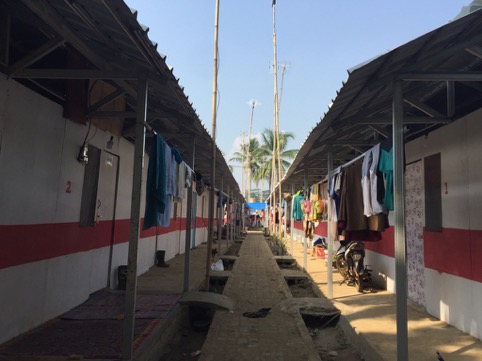
Temporary shelters for the tsunami displaced
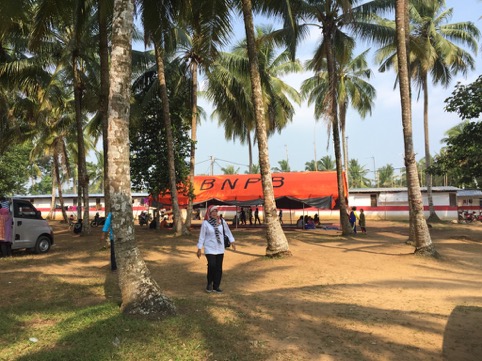
The orange tent is a place, where the residents of the camp meet to socialise and to receive their handouts of aid, when it arrives
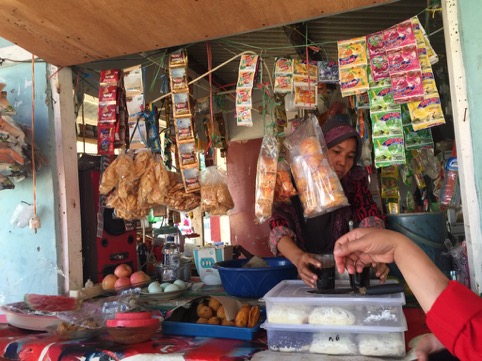
A small shop in the camp
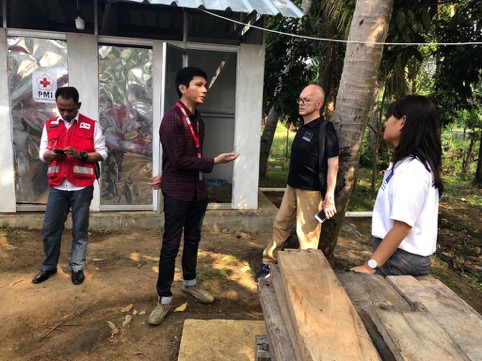
Checking on the latrines in the camp
On a more positive note, my Mum has just told me that Tahir's official invitation for his Schengen visa is now approved. This is a very important step towards receiving it. Hopefully, he will be in the Consulate of Poland in Toronto next week, and soon after, he will get the document that he needs to travel! Fingers crossed!
